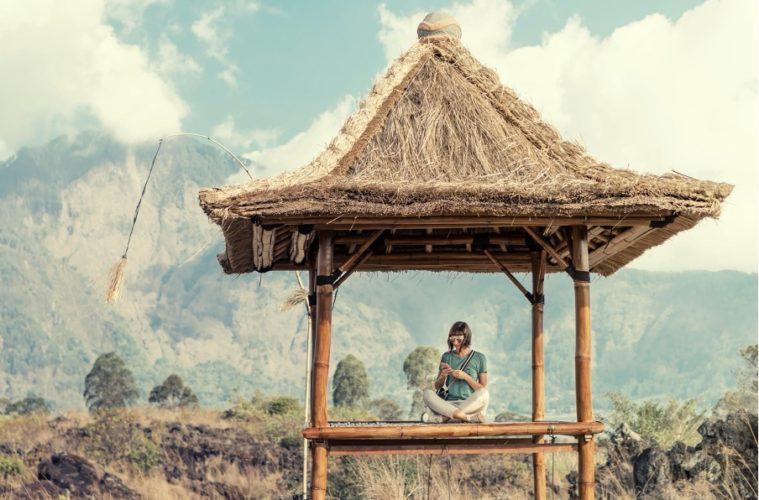*Brand Partner Content*
How SafetyWing is Offering Remote Workers and Employers Access to Coverage in 2021
Across the globe, the rates of individuals working remotely, independently, and nomadically are skyrocketing. This workforce revolution is occurring too quickly for insurance companies to keep up. SafetyWing is the first-of-its-kind insurance provider specifically offering coverage solutions, helping society embrace this change.
Most people would be hard-pressed to deny the benefits that come with remote work. The flexibility to work in sunny locales, no rush hour commutes, and a lower cost of living are just a few of the reasons why freelancers and entrepreneurs around the world have eschewed office life in favor of remote work.
The upsides aren’t exclusive to digital nomads, either. Companies that allow their employees to work remotely often see advantages like increased engagement, better productivity, and significant cost savings—not to mention the added perk of gaining access to a talent pool that spans the entire world.
And while COVID-19 has no doubt accelerated the rise of remote work, the phenomenon isn’t new. Advances in technology and an increasingly global world have been opening the door to more flexible working opportunities for years. It’s only become dramatically more prevalent than it used to be.
The pandemic has taught companies across a wide range of sectors that employees don’t need to be in the office to be productive, and that operations can run just as smoothly when their teams work remotely. Not surprisingly, market research firm Forrester has predicted that remote work will rise to 300% of pre-COVID levels. And according to another study conducted by Gartner, more than 80% of company leaders surveyed said their organizations plan to allow employees to work remotely at least part of the time upon reopening from the COVID-19 pandemic.
Many companies have already begun to take steps to do just that. Google plans to test out a hybrid model allowing employees to telecommute for part of the week. Facebook said as many as 50% of its employees may be working remotely within the next five or ten years. And companies like Zillow, Shopify, and Twitter have made bolder changes, announcing that they will allow employees to work from home forever.
A number of countries have also been quick to react to this changing world, offering extended visas to lure digital nomads and remote workers. Barbados rolled out a “12-month Barbados Welcome Stamp” last year—giving travelers the chance to work out of the Caribbean island for up to a year. Dubai launched a similar program called a “one-year virtual working program” that welcomes remote workers based overseas and their families for up to 12 months. The list goes on, and it’s poised to become a significantly longer one in the months to come.
One outcome of a more remote workforce is that more and more companies will turn to hiring across borders—a trend that’s paving the way to a transformational shift within the hiring industry.
If you’re thinking this all sounds pretty rosy so far, you’re not wrong. But for all the perks that freelance and remote work offer, there has been one significant obstacle that workers have struggled with: they lack benefits, such as medical and health insurance, income protection, and more.
SafetyWing: The Insurance Solution for a New Normal
Norwegian-born Sondre Rasch experienced this first-hand through his own experience in the freelance industry several years ago. “As a freelancer living abroad, I discovered that no one offered what I needed,” he said.
To address this flaw, Sondre, along with co-founders Hans Nyvod Kjellby and Sarah Beyahte Sandnes started the world’s first international travel medical insurance and global health insurance company for remote workers and digital nomads, called SafetyWing. Think of it as a global social safety net that exists on the internet.

SafetyWing founders, Hans Nyvod Kjellby, Sondre Rasch, and Sarah Beyahte Sandnes
Typically, safety nets like health insurance are only available to citizens who reside in their home country. This, of course, poses a problem to digital nomads and remote workers who are location-independent. As a result, they tend to fall through the cracks when it comes to receiving critical coverage—missing out on the support that full-time employees have access to.
The reality is that most freelance and remote workers are left to unravel the complexities of insurance on their own—a daunting task that can be expensive and time-consuming. Many remote workers end up operating unprotected because of it.
For digital nomads and remote workers, a lack of benefits can have devastating consequences. If they get sick or injured while abroad and require urgent care, they can be left to foot enormous medical bills on their own. In addition, they don’t have the security that comes with income protection, as well as a pension that’s important to have down the road.
SafetyWing has been at the forefront of solving these challenges—and the San Francisco-based company has been making strides in doing exactly that by tackling one issue at a time. In 2018, they launched their first product to deliver one of the most important needs when it comes to having a safety net: health insurance. For a monthly fee of $40, digital nomads who work online and live abroad can receive travel and medical insurance anywhere in the world. This also covers COVID-19, a perk that few other insurance companies have included in their policies.
Last March, the company rolled out Remote Health, a global health insurance for remote teams that provides full coverage—including hospital charges, cancer treatment, emergency ambulances, newborn coverage, parent and child overnight accommodation, and more.
The team says they won’t stop until they’ve built a fully functional global replacement for national welfare systems. They’re currently working to offer Remote Doctor, which will enable remote workers to get premium medical care from the comfort of their own home—and at a much lower rate. They’re also working to launch Remote Pension this year, a pension savings plan that prepares workers for retirement and that has built-in sabbaticals.
These solutions couldn’t come at a better time. Once the pandemic comes to an end and countries around the world reopen their borders to international travelers, we are poised to see a surge of digital nomads and remote workers eager to do their job in new and unique locations.
“The flood of people going remote this year means a flood of nomads next year,” said Sondre Rasch. “Many people are contemplating living in big cities and moving to cheaper locations around the world that are more in line with their lifestyle preferences.”
Fortunately, SafetyWing gives them the peace of mind to do just that.
Discover how to reap the full benefits of remote work through SafetyWing.
Advertising disclosure: We may receive compensation for some of the links in our stories. Thank you for supporting LA Weekly and our advertisers.

